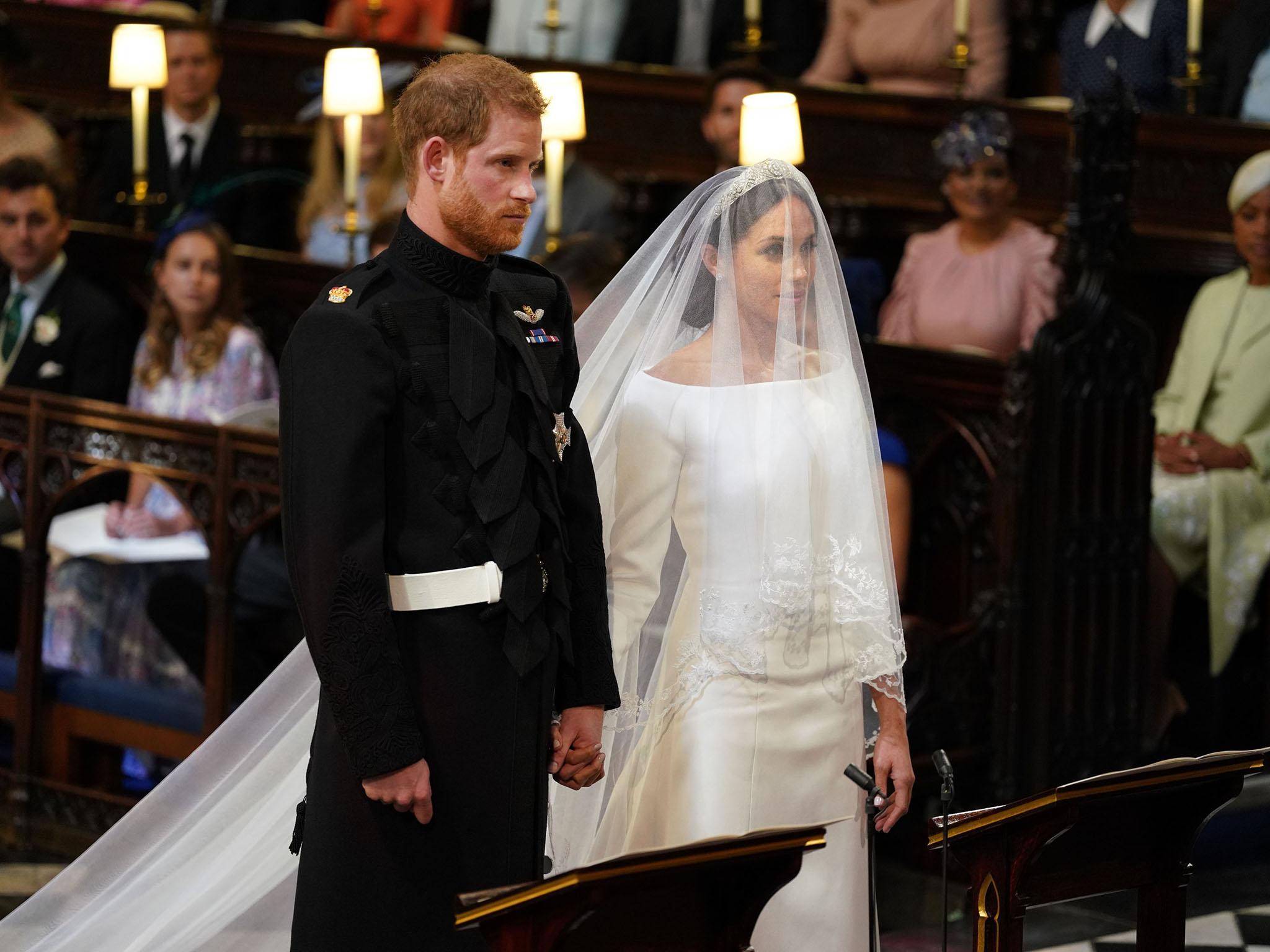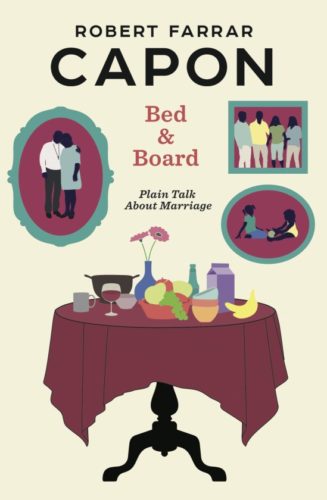
This one was written by journalist and friend Anna-Liza Kozma.
I spent the other week working on and off on the royal wedding. I wasn’t frosting lemon and elderflower cake or plucking lilies at dawn. Or getting fitted for a fascinator.
Instead, I talked to people like the feminist historian Rosalind Miles about what she calls “the genius of a 2000-year-old monarchy to reinvent itself.” I won’t detail here my discussions with a Mohawk writer who spoke of the Queen as a Clan Mother or my dear BBC friend who took her aged in-laws to join the crowds around Windsor Castle and got a close-up view of the newlyweds’ carriage. I have to leave something for the radio show.

The thing that struck me as Mockingbird-worthy about the whole hoopla came in a flurry of emails that flew back and forth among some Christian journalist friends. Meghan and Harry were already married in the eyes of God, one argued, because they had been cohabiting at Nottingham Cottage on the grounds of Buckingham Palace.
One friend pointed to what she feels is the hypocrisy of the Archbishop who baptised Meghan in a quiet service in The Chapel Royal at St James’s Palace. (The Daily Mail had hyped Meghan’s baptism into the church as “a secret ceremony”. Clearly no journalist there understood that the sacrament of baptism can be celebrated with a congregation or with family, with or without fancy cake and champagne to follow.)
To be baptised and confirmed by the Archbishop while ‘in sin’ and obviously unrepentant is the kind of rank hypocrisy at the highest level that has discredited the faith, argued another friend. “What’s the point in anyone trying to live biblically when the chief shepherd behaves like this?” they wanted to know.
These questions have forced me to dig back deep through the frosting and pull out a plum or two of meaning beyond what was required by my job as a radio producer covering the royal event.
As a repeat offender, I know that the living together thing is complicated — as is being a Christian in these divided times. The fallout over Episcopal Bishop Michael Curry’s Martin Luther King referencing, love-laden wedding sermon bore witness to that. One grace-heavy minister friend tweeted that he had lost and gained more twitter followers by enthusing about that wedding sermon than anything else he remembered.
Another minister, and one who rejoiced in what he called the absurdity and “paradox piled on paradox” of the Church, has helped me wrestle with some of this. The late Father Robert Capon lays the living in sin problem to bed most winsomely in his brilliant book about Christians and marriage that my latest and best husband and I picked up at the Mockingbird Conference in NYC:
 In “Bed and Board” Capon describes the blank stares couples give in the pre-marriage sessions “that the canon law blithely refers to as ‘instructing the parties as to the nature of matrimony’.”
In “Bed and Board” Capon describes the blank stares couples give in the pre-marriage sessions “that the canon law blithely refers to as ‘instructing the parties as to the nature of matrimony’.”
What is it we want? A tweeted selfie of Meghan on her knees? And what would that mean anyway?
And how do we know the Archbishop of Canterbury didn’t follow the injunction to dish on the church’s teaching that “married sex” isn’t something that can be “practised” because “pre-martial intercourse is not the same as the marriage bed,” in the winsome way that Father Capon did in the sixties?
Who is to say that the chief bishop in the worldwide Anglican communion didn’t use the preparation for the quiet, intimate sacrament of baptism to talk quietly to the newest member of the royal family? These are words that Capon used in a similar context:
“Try to make the start as much of a start as you can,” he says. “What you really need to practice is keeping promises… So, I say, if you have so far been chaste, don’t let anyone talk you out of it. And if you haven’t been, well, try and cut out the compromises. Even a tardy dose of principle is better than none.”
It’s worth mentioning that Meghan didn’t have to get baptised into the Church of England at all. She had been baptised as a child and as such could have been married and taken communion as Get Religion’s Terry Mattingly, who took the trouble to dissect canon law and prayer book, shows.
Mostly though I’m moved by the thought of this quiet baptism with or without the Jordan River water the Archbishop used. (It has to be boiled by the way as it’s filthy. I once brought some back in a Coke bottle to freeze for future use. “This water could kill both me and the baby,” said my wise priest years later.)
And the royal wedding itself, who would be churlish enough to deny its glorious pageantry? Years ago I interviewed former Archbishop, George Carey, who conducted Lady Diana’s funeral, and I seem to remember his thoughts along similar lines. The Church has been gifted with ritual and liturgy uniquely formed for such moments as these.
To quote the incomparable Capon again: “Of course it is all absurd. I try to imagine what orthodox Christianity must seem like to outsiders. I cannot see how it can sound anything but appalling. It is purely and simply outlandish.”
And yet. And yet something tells me that Capon wouldn’t have been surprised that two billion people watched the royal wedding party the Church threw for Meghan and Harry.
And not surprised that it was what he would have called a stylish one. The dowdy old Church can pull out her glad rags and sway with the best of them.

The royal wedding was tightly scripted pageantry that allowed ample room for the personal and eccentric. There was liturgical form and scriptures galore, yet room for that sonorous, generous and funny sermon, a gospel choir and lip-biting glances. Room to dip heads down to hide under massive UFO hats, room for kisses and hand holding.
Anyone who has thrown a kids’ birthday party knows how much easier it is to follow the expected order of games before cake and then presents. The kids expect it and enjoy the pattern as much as any surprises.
To Robert Capon, the Church “is indeed all things to all men, a measure stretched far out of shape, partly by carelessness but partly by her gallant attempt to encompass the boundless grace of God.”
While watching the wedding on her hotel TV, my twitter friend, Diana Butler Bass said at one point she stepped out of her room and into the hallway. All she could hear behind the closed doors was Bishop Michael preaching God’s love. This is what was heard:
There’s power in love.
Don’t underestimate it.
Don’t even over-sentimentalise it.
There’s power — power in love. . .
There’s power in love to lift up and liberate when nothing else will.

COMMENTS
Leave a Reply












